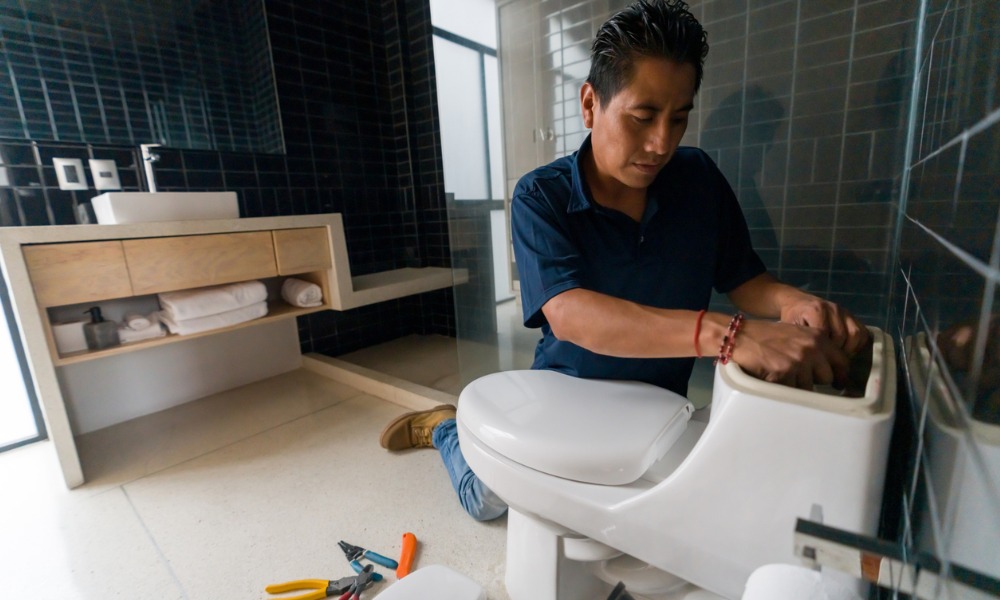
'This is actually a health-and-safety issue for construction workers,' says province's minister of labour

One province has mandated that flushable toilets be a staple at construction sites, which could be the end of porta potties in these workplaces.
British Columbia will soon require construction sites with 25 or more workers to provide workers with flushable toilets, along with handwashing facilities and clean bathrooms.
“We all know how unpleasant port-a-potties can be, but this is actually a health-and-safety issue for construction workers,” said Harry Bains, minister of labour. “We have heard clearly from the building sector that it is an important issue for workers, and it contributes to the sector’s ability to attract and retain workers, including women.”
Changes to the Occupational Health and Safety Regulation relating to flushable toilets on construction sites come into effect on Oct. 1, 2024.
Previously, a Nova Scotia arbitrator upheld the dismissal of a worker who unsettled many of his colleagues with too much self-love in the office washroom stalls.
The new requirement is for toilets that can be connected to a sewer system or holding tank, and use a flow of clean water or a mixture of clean water and chemicals to flush the bowl.
They also require hand-washing facilities with soap and water, or other methods of hand-cleaning.
Employers must also ensure washrooms are well-maintained, clean, ventilated and provide privacy.
The changes in BC come after WorkSafeBC held public hearings in January and July 2024, and consulted with employers, construction-sector associations, unions, workers and workers’ advocates. The requirements being introduced are consistent with the regulation reviewed by these participants in the public hearing in July.
WorkSafeBC will issue guidelines to support the interpretation and application of the new requirements in the coming weeks.
Federally regulated workplaces in Canada have been mandated to provide free menstrual products to employees since 2023.
Numerous stakeholders welcomed the changes to rules around toilets in B.C. construction sites.
“This is a historic win for BC construction workers,” said Steven Satter, international representative of the International Association of Sheet Metal Air Rail & Transportation (SMART) Workers, via LinkedIn.
“With the new regulation requiring proper sanitary facilities at worksites, the days of relying on portable toilets are coming to an end. This change represents a significant step forward in recognizing the dignity and health of the workforce, ensuring that workers have access to clean, hygienic, and well-maintained washroom facilities.”
The regulation addresses “one of the most egregious and long-standing indignities that construction workers have had to face in their daily lives,” said Brynn Bourke, executive director, BC Building Trades.
“The requirement for flush toilets on large construction sites means workers building B.C.’s next generation of major infrastructure will have much-improved washroom facilities, along with running water for hand-washing. A sincere thank you goes out to the provincial government for bringing this regulation into effect and to the thousands of workers who fought for these changes.”
The changes will give workers “much-better sanitary conditions that will help keep them healthy and productive while building B.C.’s critical infrastructure,” added Clive Yule, president, Total Energy Systems.
A previous report noted that office desks have far more bacteria than toilet seats.